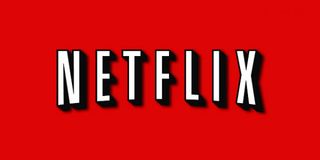Netflix Customers In Major City Will Be Hit With Big New Tax

The convenience of the internet has become a part of every day life. Just turn on your computer, join a wifi network, and bam, you have pretty much every piece of information you need right at your fingertips from streaming movies to music to news. And as more and more networks and businesses have started to take on a subscription-based tactic to keep the money flowing, store fronted business are losing customers. With that loss comes a loss in tax revenue, and now, one particular city wants to take the money back that they are losing. In the process Netflix will have to charge even more for these specific Chicago customers.
Cities are no longer receiving the local tax revenue they once had, and it all comes down to the convenience of the internet. There aren’t many people still going out to their local record shop (or the non-existent video stores) any more to pick up entertainment. So cities aren’t making as much money as they used to. But, in the city of Chicago, that’s all about to change, as according to The Verge, today a new “cloud tax” goes into effect. You’ve probably heard of the cloud, it’s how we get services like Netflix and Spotify with seemingly unlimited libraries at our disposal. Well now, in Chicago, the cloud is about to get taxed, specifically “electronically delivered amusements” and “nonpossessory computer leases”. These rulings will put an extra 9 percent tax on certain types of online services.
These rulings cover everything from Netflix and Spotify to Amazon Web Services and Lexis Nexis, and although the tax is technically levied on consumers, it is making services rethink their subscription prices to collect as part of a monthly bill. Netflix is the first company already looking to increase prices, and work in the tax cost for the monthly subscription fee for Chicago customers. The service will be able to track your location through billing addresses and even IP tracking.
This has been a worldwide issue, as jurisdictions around the world have been trying to figure out ways to tax online services, but many are not happy with Chicago’s rulings, stating they violate the Federal Telecommunications Act and the Internet Tax Freedom Act. Reed Smith partner Michael Wynn explains to The Verge:
I could do that same activity of research using books or periodicals without being taxed. So it does seem like I'm being picked on because I chose to do it online.
Though cities and government are trying to find ways to make the money they lose out on with the convenience of online services, this new tax would undoubtedly cause a few problems if it became widespread, especially for services that try to pull listeners away from ad-supported services such as the free version of Spotify. We’ll see how far this new taxing goes, but for those in Chicago, looks like you’ll be the guinea pigs paying a bit more for the time being.
CINEMABLEND NEWSLETTER
Your Daily Blend of Entertainment News
Most Popular






